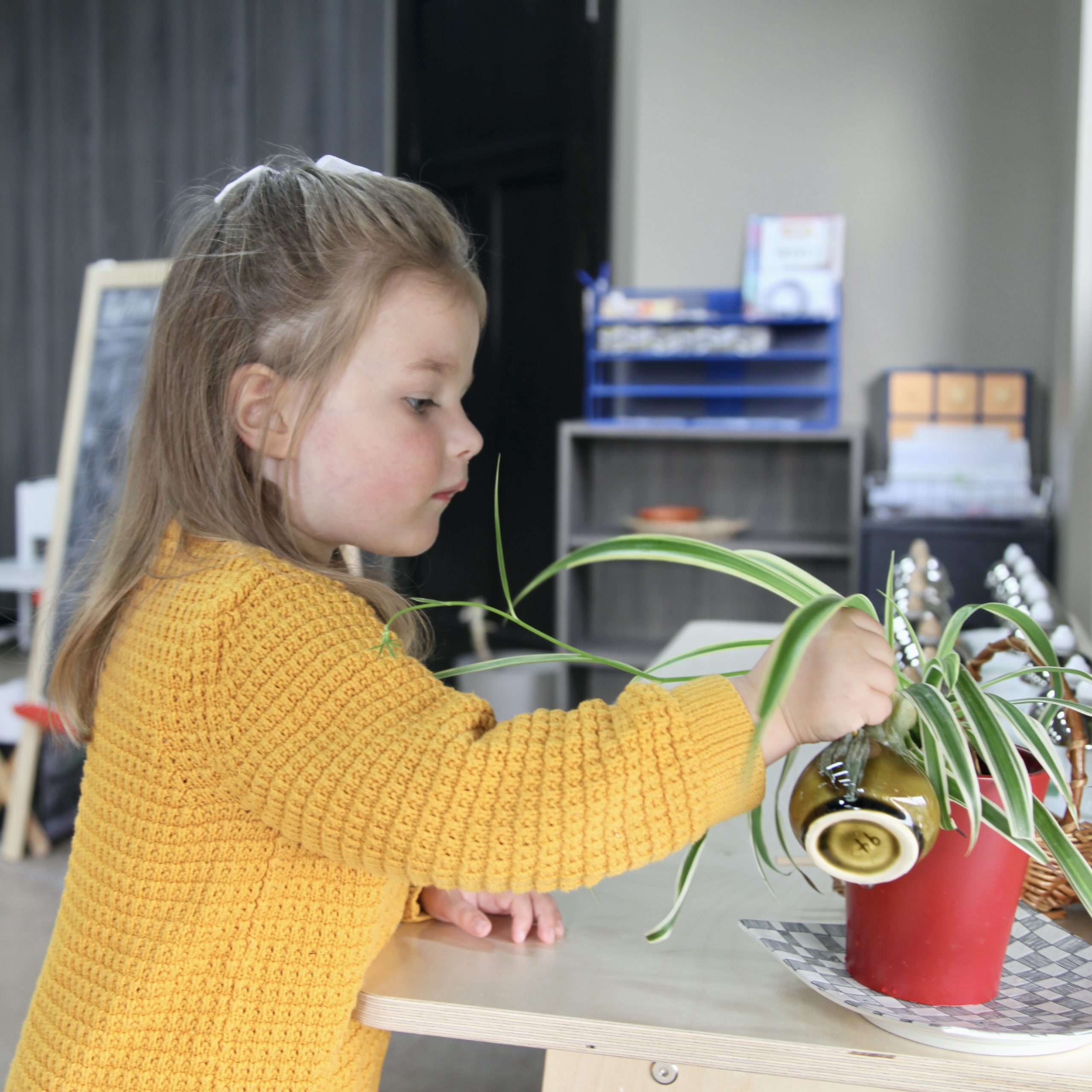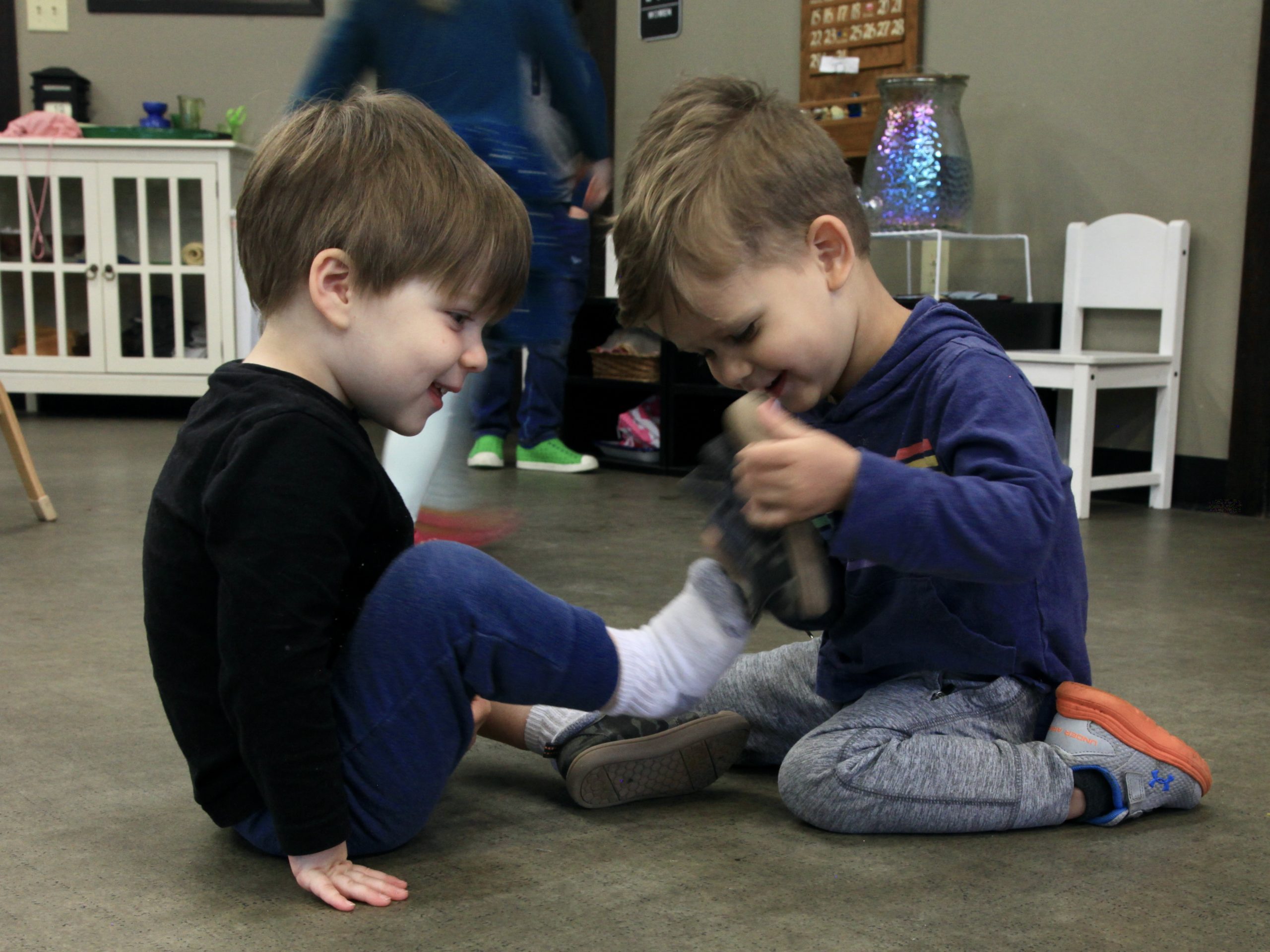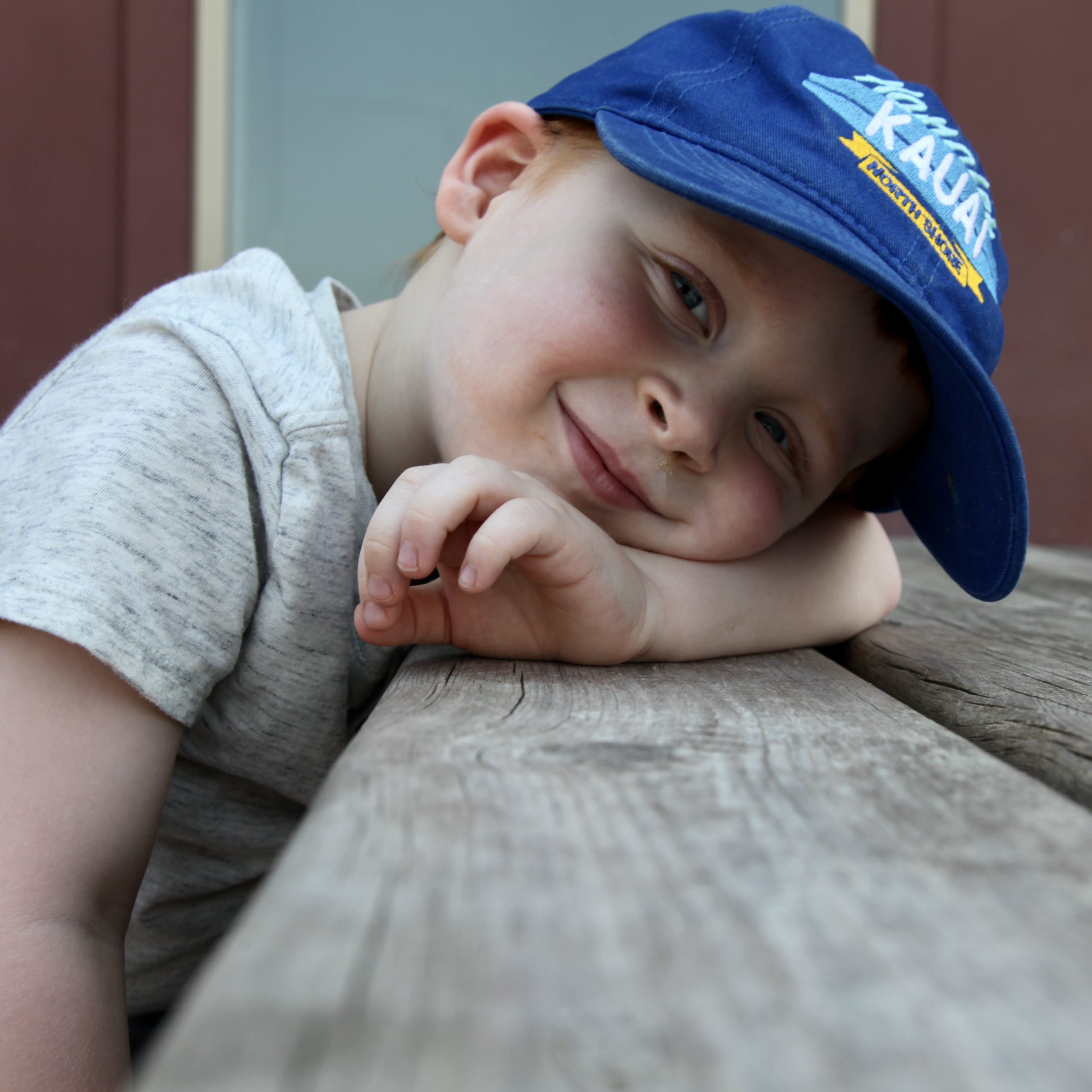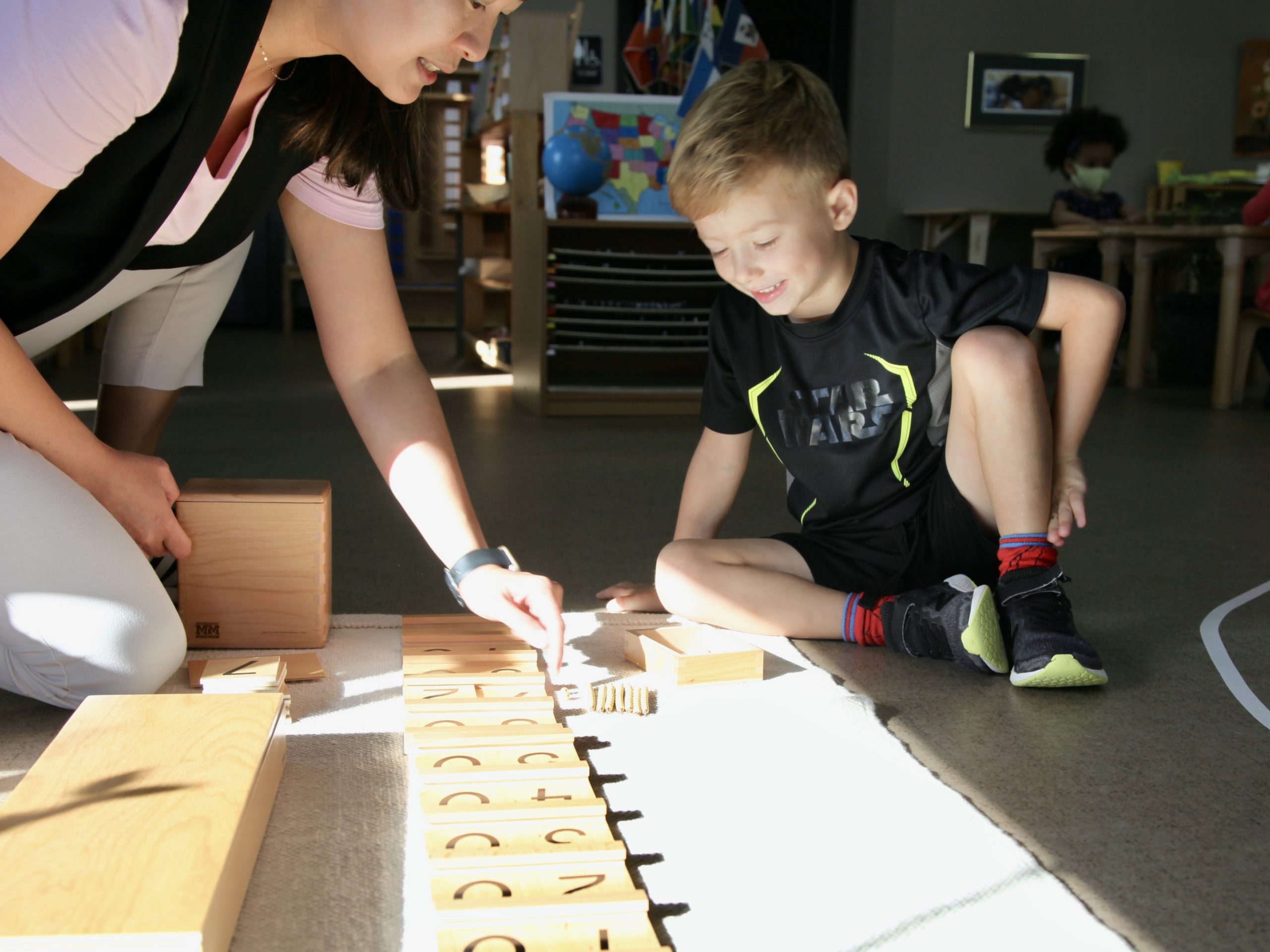“What Did You Do Today?”
Thoughts & Reflections
“What did you do today?”
This question has been asked by generations of adults at the end of their child’s day, and the answer is almost universally, “nothing.”
There’s nothing wrong with this question! Unfortunately, there’s not even a “better” question that would magically elicit more information from a child.
That doesn’t mean give up hope. There’s always hope.
Why is this such a tough question? Everything children are doing in Montessori uniquely dovetails with their development. You don’t notice when your shoes fit perfectly, you notice when they pinch or hurt or give you blisters. Even when we’re doing something new — unless it’s something big and dramatic you’ve been waiting your whole life for, like the chains or a big new writing work — is aligned with what you need, right here right now.
It’s also a very big question. If my husband were to ask me, my response would go something like this: ummmm (long silence while I try to remember this day, which seemingly happened about a week and a half ago) I wrote a few emails, said hi to children and their grown ups, didn’t accidentally say “bye love you!” which is always a big fear, tried to write a blog post but really couldn’t so apparently I’m a failure, looked for an apple slicer at Walmart for an unreasonable amount of time, got really excited at Walmart when I found toothpicks in a color-coded container… and the more I think about it, the sillier it all sounds. It’s all critically important, and a very good use of my time. Including the multiple trips for water so I don’t get a migraine, and taking some deep breaths and eating a snack after a tough conversation.

The point is, I know what my job is and I have a tough time recalling my day. In the moment and in the big picture it’s all important, but when I try to say what I did during the day, it all falls away like wet cotton candy, or sounds ridiculous, or sounds uneventful. Another meeting. A webinar. A phone call with the state. Making sure we don’t run out of toilet paper. Organizing an email list. Who wants to hear about that?!
What children do during the day doesn’t seem nearly as thrilling to them as it does to us. When people are observing at the classroom windows, the most common phrase I hear is “I could watch all day.” And it’s absolutely true. We could watch them learn and grow all day long. Think of watching a baby. They’re discovering their hand. They’re watching light bounce on the wall. They’re figuring out how to roll over. To us, it’s the most amazing thing that has ever happened. To them, it’s one more step in their development.
One way to encourage children to talk about their day is to create a habit of talking about yours. If it’s not the hot seat, if it’s just dinner table or drive home conversation, there’s more of a chance stories will emerge.
I know, I just mentioned how tough it is to talk about your day. I’m not going to share that I wrote 47 emails, and almost-but-not-quite got to inbox zero, or various meetings I had. But something interesting happens nearly every day.

We overhear a lot in the office, and when the children were getting ready to go outside today, an adult said “you always have time to walk.” We were feeling a bit punchy so one of us said “not always. What if a bear is chasing you?”
“Actually! Did you know: black bears can climb trees and brown bears can’t!”
“What about grolar bears?”
Someone in this conversation didn’t know what a grolar bear is, which led to a conversation about climate change and grolar bears and pizzley bears (definitely worth a quick internet search) which leads me to the entire point of this anecdote.
This is the perfect thing to share about your day with your child. “Do you know about grolar bears???”
Part of my job is reading, and probably part of yours is too — whether it’s the part you’re paid for or the part where you take deep breaths and reset. The world is full of fun facts! I often have brief TED talks or other news-ey research-ish clickbait in my social media or inbox, or fall down a rabbit hole when I’m looking into child brain development, communication tools, or good clothing for toilet learning. I learn all kinds of fun, interesting, sometimes useless facts. Children are a much better audience for “did you know” facts than most adults are.
“Did you know” facts tend to unravel stories and spark curiosity and sharing in a way that “how was your day” often doesn’t. It can be something in the news, like a baby animal born at a zoo recently. It can be a word you had to look up because you hadn’t heard it before. It can be something fun that happened during the day, like you saw a rainbow or your friend brought you a coffee just when you needed it. It can be something completely mundane told in the form of a story. This one is probably the hardest to imagine so I’ll give you an example.
Did you know, this morning, I thought I packed my lunch but I didn’t! I got to work and when it was lunch time I couldn’t find it anywhere! I had to eat the extra snacks I keep in my desk.
The point is, these moments happen all the time in our lives, and yet we think what is happening to others is always more exciting. If I can’t remember a fun anecdote to share with my child, it’s not a huge jump to imagine they’re having a bit of a tough time remembering parts of their day, too.
The thing about being intentional about sharing parts of your day, or fun facts, or really anything, is that it becomes What We Do. It’s not the hot seat, it’s family culture. Have you ever been in a group setting and been asked to share something about yourself? A favorite book? And now you can’t remember anything about yourself or what you like? Later on, when you’re not in the getting-to-know-you phase, it’s easy to share spontaneously. When it’s a routine, and not something some members of our family do but something we all participate in, it’s natural that children will start to contribute. Some days everyone will have lots of stories and some days there will be less to share. Particularly as you’re starting this practice, it will need to be very intentional on the adults’ part to find and remember something to share. Maybe it’s a cool rock you found, or a photo you took of the sunrise on your way to work.
Just like any new practice, it’s fun and exciting the first day, and maybe you find a hundred things you want to share with your child. Then it’s no longer new and exciting, but it’s also not yet habit, and it gets a bit harder. Like any emerging practice, seeing results from your work is often enough to create a bit of momentum.

When adults share something about their day, it serves as a model for children, and children naturally want to emulate these models. This is how we communicate as a family, great. Something an adult shares might be a catalyst for a fun fact a child learned, maybe not this day but something you didn’t know they knew.
Today, I saw the most beautiful red leaves on a shrub on my way to work. I think it was called a burning bush.
What kind of leaves were they?
…Red leaves?
No, what SHAPE were they?
[crickets]
[sigh] You know, were they reniform? Hastate? (Nobody can make you feel like you don’t know anything like a young child can.)
Metacognition is knowing what you know, and how you know it, and it’s particularly tough for young children. It’s hard for all of us — we use acronyms and jargon unique to our field without realizing they’re not common knowledge. My sister was very irritated with me until she found out “preceptor” was only “everybody knows it” language in nursing. Until someone points it out, we often don’t realize the words we use that only exist in our field. Here’s a really cool article about jargon.
When children are spending their day in a Montessori classroom, they don’t realize everyone doesn’t know what a hastate leaf is, everyone can’t name the two rules of division (everyone gets the same and if everyone can’t have an equal share no one gets it. That’s called a remainder), everyone doesn’t see color coding of various cloths or objects linked inherently to their meaning. In the classroom, it would be absolutely absurd to use a small yellow flannel cloth for anything other than polishing brass.
This is another reason children have a hard time sharing about their day. Without this metacognitive awareness, it’s impossible to extrapolate that others don’t know this, that the new vocabulary I learned during the day isn’t common knowledge, that what I did during the day is different from what others did. There’s not much to share, it’s just brass polishing. It’s just long division. It’s just reading. Everybody knows that.
It’s natural to want to know how your absolutely favorite person spent their day. It’s also natural to think that the way you spent your own day is pretty uneventful. Both those sentiments are true, whether you’re the parent or the child. As is so often the case, modeling is one of the best ways to teach.
Written by:
Charlotte Snyder
